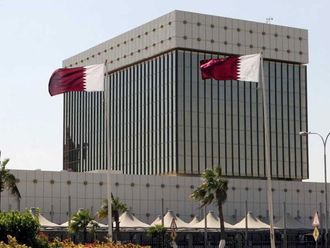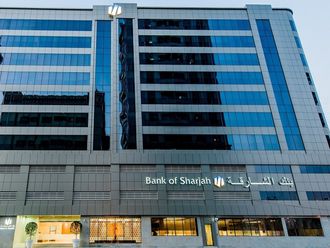London: Money markets are showing rising levels of mistrust between Europe's banks on concern an almost $1 trillion (Dh3.67 trillion) bailout package won't prevent a sovereign debt default that might trigger a break-up of the euro.
Royal Bank of Scotland Group and Barclays led financial firms punished by rising borrowing costs, British Bankers Association (BBA) data show.
The cost to hedge against losses on European bank bonds is 63 per cent higher than a month ago.
Investment-grade corporate debt sales in the region plummeted 88 per cent last week to $1.2 billion from the previous period.
The rate banks say they charge each other for three-month loans in dollars rose to a nine-month high, even after a government-led rescue designed to prevent Greece from defaulting, and a new financial crisis.
The euro fell to its weakest against the dollar since 2006.
Bank lending "conveys a lack of trust in the system," said Robert Baur, chief global economist at Des Moines, Iowa-based Principal Global Investors, which manages $222 billion.
"Banks are a little reluctant to lend overnight as they don't know the full extent of what is on the bank balance sheets."
The three-month London interbank offered rate in dollars, or Libor, rose to 0.445 per cent last week, the highest level since Aug-ust, from 0.428 per cent on May 7 and 0.252 at the end of February, according to the BBA.
Highest level
The three-month Singapore interbank offered rate, or Sibor, rose to 0.45083 per cent yesterday, the highest level in nine months, according to the Association of Banks in Singapore.
Concerns have spilled into the market for commercial paper, debt used by companies and banks for their short-term operating needs.
Rates on 90-day paper are more than double the upper band of the federal funds rate, about twice the average in the five years before credit markets seized up in mid-2007.
"The list of banks able to tap the three-month market remains extremely limited," wrote Joseph Abate from Barclays, New York.












